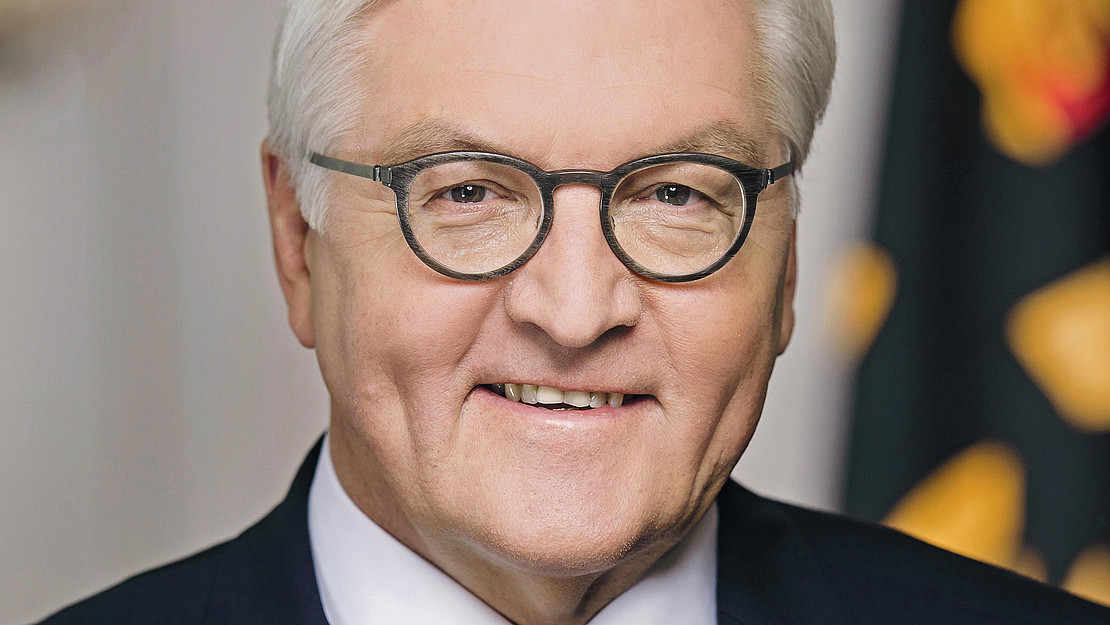This page contains automatically translated content.
"Light Up Our Democracy!"
 Image: Federal Government/Steffen Kugler.
Image: Federal Government/Steffen Kugler."This Germany - with its truly difficult history - has today become a hope and a haven of reason for many, a partner for those around the world who demand freedom of the mind and freedom of the word," said German President Frank-Walter Steinmeier. At the same time, he urged that science, precisely because it enjoys special freedoms and privileges, also bears a special responsibility for the success of democracy. "If science makes normative judgments, if it recognizes necessary changes, then it must be willing and able to enter politics and society and explain, advertise, mediate. It must be willing to be part of the democratic debate," Steinmeier said.
"Free science, built on open discourse and debate with dissenters, is an indispensable component in the foundation of a democratic and sustainable society," said Prof. Matthias Kleiner, President of the Leibniz Association, emphasizing the responsibility of science in times when freedom of research as well as scientific evidence are being called into question in many places. Prof. Martin Stratmann, President of the Max Planck Society, also emphasized the task of not creating false incentives in the science system and unintentionally restricting freedom: "If young people choose their topics primarily on the basis of pleasing publishability in highly respected journals, then something is going wrong. We know from countless examples: Human creativity sticks out, disturbs, throws sand in the gears - including those of science."
In the subsequent panel discussion on the "Future of Free Science," representatives from science and politics debated current and future challenges and framework conditions for free science in Germany and worldwide: Dr. Roland Busch (Siemens AG), Prof. Dr. Wolf-Dieter Lukas (State Secretary at the Federal Ministry of Education and Research), Prof. Dr. Judith Simon (University of Hamburg), Prof. Dr. Peter Strohschneider (German Research Foundation) and Prof. Dr. Ricarda Winkelmann (Potsdam Institute for Climate Impact Research) covered a wide range of topics in their discussion. They agreed that free research is a prerequisite for groundbreaking innovations, just as purpose-free research is a central value of democracies. Another conclusion on the podium: strong voices from science are necessary to promote discourse in society.
A review of the event, including videos and speeches, will soon be available at www.wissenschaftsfreiheit.de. The website also provides an overview of the entire campaign with its events and contributions in various formats such as a dedicated podcast, interviews, articles and videos. The memorandum "10 Theses on Academic Freedom" is also available online at https://wissenschaftsfreiheit.de/abschlussmemorandum-der-kampagne/.
The Alliance of Science Organizations is an association of the most important science organizations in Germany. It regularly takes a position on important issues of science policy. The Leibniz Association is a member of the Alliance and has taken the lead for 2019. Other members are the Alexander von Humboldt Foundation, the German Academic Exchange Service, the German Research Foundation, the Fraunhofer-Gesellschaft, the Helmholtz Association, the German Rectors' Conference, the Max Planck Society, the German National Academy of Sciences Leopoldina and the German Council of Science and Humanities.